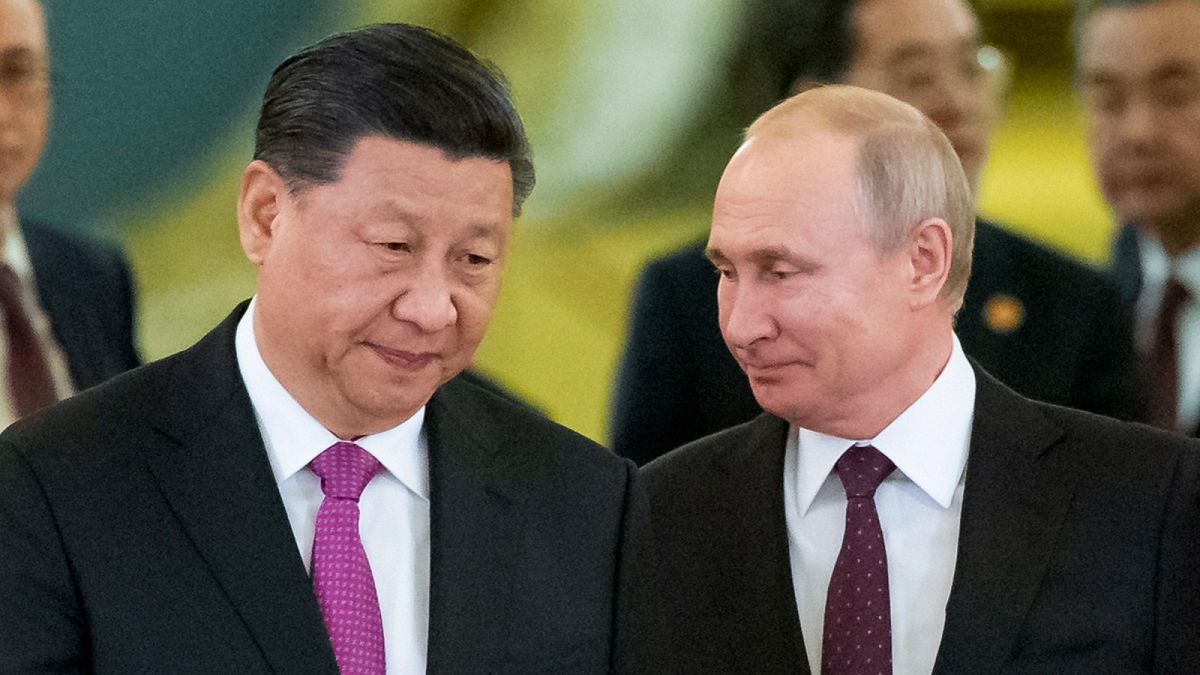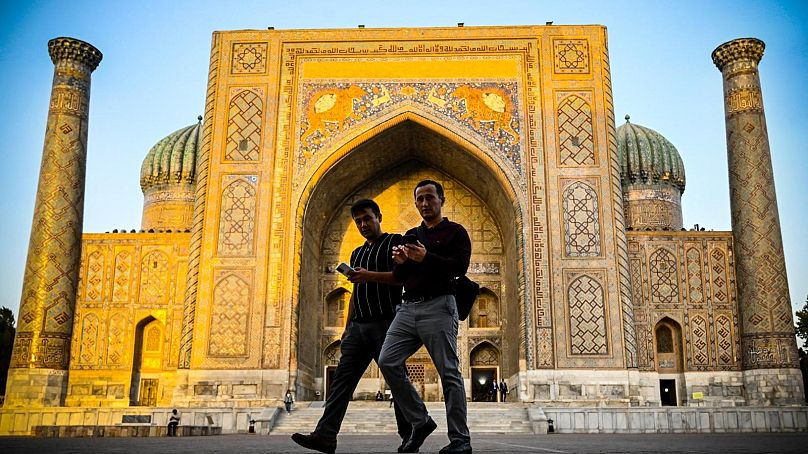Both countries have vied for influence in Central Asia but Beijing will be wary of getting too close to Moscow, say experts, in case the EU and US get annoyed.
Russian President Vladimir Putin and his Chinese counterpart Xi Jinping are meeting in the ancient Silk Road city of Samarkand in Uzbekistan this week, an event that will be watched closely across Central Asia, in European capitals and Washington DC.
The Kremlin has already hailed the importance of the planned meeting, which will be held on the margins of a Shanghai Cooperation Organization summit on Thursday, noting that it's particularly important amid tensions with the West.
“The meeting has a special significance in view of the current international situation,” Putin's foreign affairs adviser told reporters, saying the two leaders will discuss the international situation, along with regional issues and bilateral cooperation.
China has pointedly refused to criticise Russia’s action in Ukraine and denounced Western sanctions against Moscow. Russia, in turn, has strongly backed China amid tensions with the US that followed a recent visit to Taiwan by US House Speaker Nancy Pelosi.
“China has taken a well-balanced approach to the Ukrainian crisis, clearly expressing its understanding of the reasons that prompted Russia to launch the special military operation,” the Russian adviser said, referencing Moscow's invasion of Ukraine and ongoing war.
How does Russia benefit from this meeting?
The benefits for Russia are self-evident: Vladimir Putin clearly gains by being seen on the world stage with other leaders and will have an important handshake moment with Xi.
The Russians have also been hoping to find a way through international sanctions which have hit their economy hard and establish new markets for Russian products, or source new suppliers for items they can no longer import from the EU.
Regionally, being seen as an important player in Central Asia is something which the Russians will want to maintain even if their soft and hard power is waning.
"In Central Asia, Russia used to be seen as a security provider, but the Russians are less welcome now," said Mikael Wigell, Research Director at the Finnish Institute for International Affairs, and an expert in Russian and Chinese strategies.
"The Belt and Road Initiative has been very much a part of China's strategy in Central Asia, and it's using economics and infrastructure to bind other countries, gaining Beijing a lot of political leverage as well," he told Euronews.
"Russia has been trying to do the same through the Eurasian Economic Union, but they do not have the capacity to be successful anymore. The Union is in bad shape and Russia is completely depleted economically. Many countries are seeing Russia more as an enemy than a friend," said Wigell.
What does China stand to gain from the meeting?
For China it would seem, on the surface at least, there are more risks than rewards with a high-profile Putin meeting.
However, it's not in Beijing's interests to let Russia collapse completely, and there have been a number of statements in the last six months where Russia gave "diplomatic shelter" to Russia over its actions in Ukraine.
"Xi Jinping is worried about China becoming very alone right now," said Mikael Wigell.
"If the international system is moving towards democracies versus autocracies, then China will need Russia."
China could also see Russia as a useful partner in subverting democracies -- an area where Moscow has prior experience -- because Beijing recognises that any growth in democracy directly threatens its grip on the country.
There's also a tightrope to walk for the Chinese between keeping a 'friendly rival' like Russia close, but not so close that it incurs the wrath of Western sanctions.
"The risk that Xi Jinping is taking now is that we can assume the US will start to sanction China more [if it gets too close to Russia]," Mikael Wigell told Euronews.
There has already been some international consequences for China, with both Estonia and Latvia pulling out of the so-called 17+1 mechanism that brought Baltic and Eastern European countries together with the Chinese: a direct result of Beijing's refusal to criticise the Russian invasion of Ukraine.
"In the end, for the Chinese economy the Western world is really, really important and there's a lot of dependency on Western technologies in particular," said Wigell.
"So it's a risky strategy for Beijing to partner up with Moscow."

